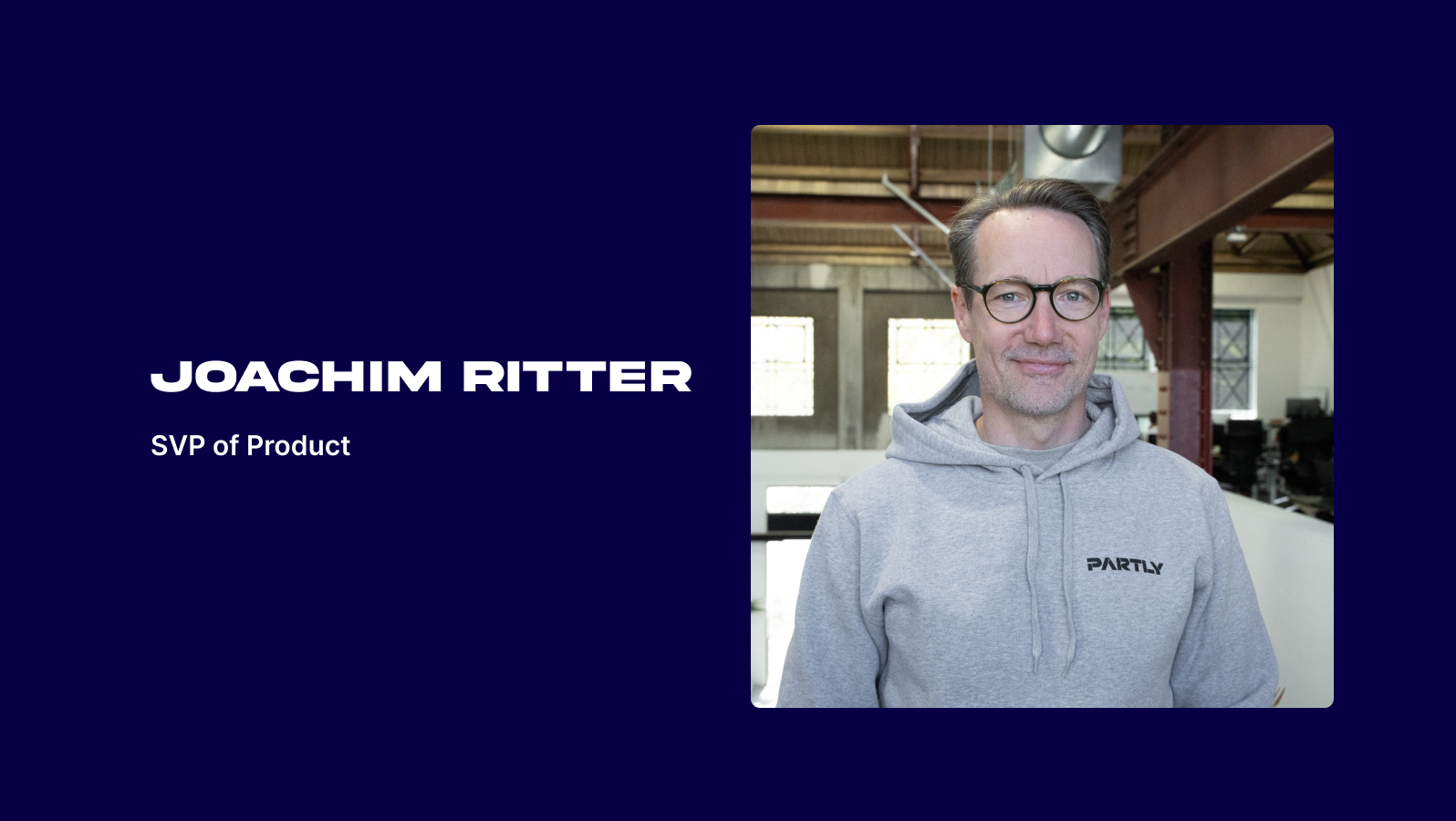Team Spotlight: Meet the Partly team—world-class leaders from automotive, tech, and engineering working to connect the world's parts. Joachim was a founding member of CARIAD — Volkswagen's software subsidiary, built from scratch in 2019. Find out his biggest lessons from building one of Europe's largest tech ventures, and why he's now building at Partly.
You’ve moved from one of Europe’s biggest tech ventures, CARIAD, to a much smaller startup like Partly. Why make that move?
After years in very large, resource-rich environments, I was drawn to the opposite — a place where focus, speed, and creativity matter more than sheer size. At CARIAD, we had enormous resources, but that also came with heavy structures, dependencies, and processes that made decision-making slow. I missed the immediacy and clarity of smaller contexts where people are close to the product, customers, and impact.
Partly represents exactly that: a small, extremely talented team tackling an important global problem. The resource constraints force us to find truly smart solutions — and that’s something I find deeply energizing.
Tell us about your journey founding CARIAD at Volkswagen Group.
In 2019, Volkswagen decided to fundamentally rethink software and asked a small group of senior automotive leaders and a few external experts, including myself, to build a new software company from scratch — CARIAD.
We started literally with a blank sheet of paper. Within a year, we grew from a handful of people to over 3,000 — eventually managing 10,000+ across internal and external teams. We took over responsibility for the software of Volkswagen’s ID electric vehicles, Audi’s and Porsche’s premium electric architectures, and the connected-vehicle cloud platforms serving 100+ countries.
The early phase was wild and intense — huge delivery pressure, unclear ownerships, complex integrations, and constant firefighting. But it was also a once-in-a-lifetime experience to build a large-scale tech organization within a global automotive group.
What were your biggest learnings from building CARIAD?
The most important learning: complex systems cannot be designed into success — they must be evolved through iteration.
At CARIAD, we learned the hard way that no matter how detailed your plan, complex socio-technical systems need cycles of trial, feedback, and adjustment. The challenge was that the broader Volkswagen culture was built around long-term planning and control, not experimentation and adaptation. That clash slowed us down massively.
It also showed me that agile methods have a cultural ceiling: they only work in environments that allow freedom, trust, and decentralized decision-making. When those are missing, you can’t just “install” agility — you have to build the foundations first.
You had billions in resources at CARIAD. What can’t money solve in automotive software?
Money can buy people, tools, and infrastructure — but it can’t buy alignment, focus, or creativity.
When resources are abundant, the natural tendency is to throw more people at every problem. That often makes things worse: more communication lines, more coordination overhead, and slower delivery. In contrast, when resources are scarce, you have to prioritize, simplify, and innovate.
Ironically, once CARIAD started to tighten budgets, we became more efficient. The constraints forced better thinking. That’s something startups like Partly have as a built-in advantage.
How do startups like Partly approach problems differently?
Startups have fewer resources but far more degrees of freedom. They don’t need to protect legacy systems, appease a dozen brands, or navigate endless committees. They can move fast, experiment, and learn in real time.
The challenge, as a startup grows, is to keep that agility alive. Bureaucracy tends to creep in naturally as complexity increases. The art is to delay that slowdown as much as possible — to stay small in mindset even while scaling in impact.
What specific learnings do you bring from CARIAD to Partly?
Three that stand out:
- Keep the talent bar high: Growth always pressures hiring standards. But one exceptional person can outperform ten mediocre ones — and prevent layers of inefficiency later.
- Preserve team autonomy: Every dependency between teams slows you down. When in doubt, optimize for autonomy, not alignment. You can always align later; freedom is harder to regain once lost.
- Protect the voice of experts: Large organizations often overvalue executive judgment and undervalue deep expertise. At Partly, the experts are the backbone — and keeping that culture of humility and respect for craft is crucial as we scale.
What will you focus on at Partly?
My focus is on building the product function for scale — strengthening how we design, build, and evolve our products as the company grows globally.
Partly’s product-engineering community is small but world-class. With rapid expansion ahead — new markets, new products, and a growing customer base — our way of working needs to evolve accordingly.
I’m here to help shape that evolution: to ensure we keep shipping world-class solutions at speed, while building a product organization that can scale sustainably without losing its heart.
Closing Thought
CARIAD taught me how complex and slow large systems can become — and how powerful simplicity, autonomy, and focus are in comparison.
Partly gives me the chance to apply those learnings in a lean, purpose-driven setting. That’s a challenge I didn’t want to miss.
About Partly
Partly provides the enabling AI infrastructure that connects the whole automotive supply chain, reducing friction and costs while improving operational efficiency for everyone.










